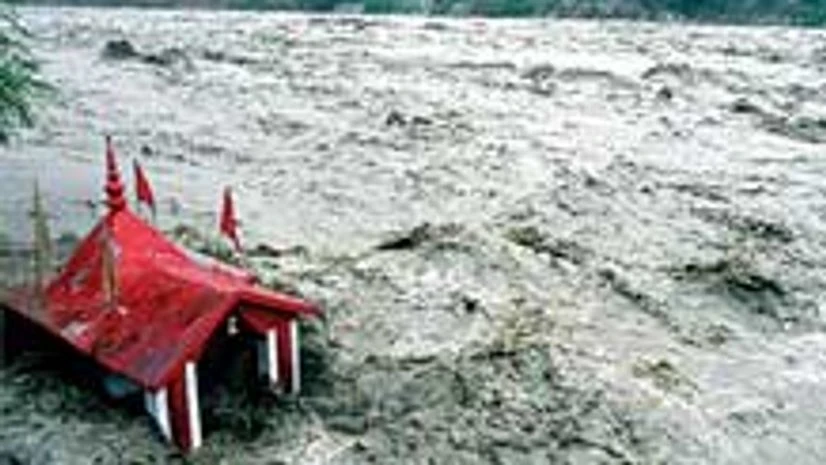In Uttarakhand, it seemed Lord Shiva was playing his dance of death but that doesn’t even come close to the dance being played by humans themselves. The seven billion people on earth have reduced the populations of a multitude of others species to near extinction.
Hinduism as a religion, it seems, owes everything to nature. No religion, perhaps, lays as much emphasis on environmental ethics as Hinduism, while the religion’s essential texts such as The Mahabharata, Ramayana and the Upanishads contained the earliest messages for preservation of the environment and ecological balance. In fact, Hinduism states that man is forbidden from exploiting nature. Of late however, it seems that the thought and genuine compassion so essential to the religion has been forgotten, leaving it nothing more than a hollow shell of empty rituals and chants.
Take, for example, the question of pilgrimages. Pilgrimages were meant to be arduous journeys undertaken after much thought, a pinnacle of religious achievement almost, revered because of the enormous difficulty associated with making one. Most people don’t know that pilgrimages could only be taken by foot because this kept an organic control over the number of people allowed to trample all over the fragile ecosystem.
More From This Section
Unfortunately, this increased accessibility has led to the destruction of the environment. For one, the masses of tour buses contribute greatly to the buildup of greenhouse gasses.
Probably the worst part however is people’s mindset. Try to discuss the state of the environment and most people will cluck their tongues, sympathetic and agreeing wholeheartedly, before chucking their tissues and wrappers onto the street. Pilgrims too are far too busy with their laundry list of demands to worry about the trash and destruction they leave in their wake. They’ve got to take the Gods to task, after all, marriages have to be made, children to be born, educations to be funded, stocks to be doubled – there is no time to worry about the environment.
Uttarakhand used to be called Dev Bhoomi, the planet of the Gods, in respect to the richness of the biodiversity that could be found in the mountainous region. Today those dense forests are steadily being hacked away. The highest exploitation of forestland in Uttarakhand took place between 1972 and 1982, when close to 9% of total forest cover was destroyed. It has also been observed that agricultural land has increased by over 28% in the last 30 or so years.
This upslope extension of agricultural land has not only promoted the loss of biodiversity but has also accelerated the pace of soil erosion and landslides. The rivers have all been dammed, or perhaps damned would be more appropriate.
Ideally, the public should demonstrate the will and desire to create and influence public policy. However, the Indian public seems far too busy trying to get ahead in their private lives. In their absence, it is those with vested short-term interests who benefit from the public’s apathy.
For all the environmentalists shedding tears at the mindless destruction being wrought on the mountains, the pilgrims continue to pillage.
Some may retort that worrying about the flora and fauna in Uttarakhand in the face of the hundreds of lives lost is inhuman. To which I say, that for every jawan who thinks nothing of striding into the devastation, or is part of a human shield on a mountain ledge, there are ten people thinking only of how they can exploit the situation.
These vultures, the epitomes of schadenfreude, ask trapped and desperate survivors to pay tenfold the regular price for bottles of water, a packet of biscuits or other forms of aid. They examine the dead only to strip them of their valuables and walk away with no remorse. Young children are kidnapped, many assaulted and exploited in the pandemonium.
It appears that our country has entered a time when our people are no longer moved by basic compassion and empathy. Perhaps it is those who are concerned about the earth that are far more compassionate and truly have the well being of all its creatures in mind.

)
